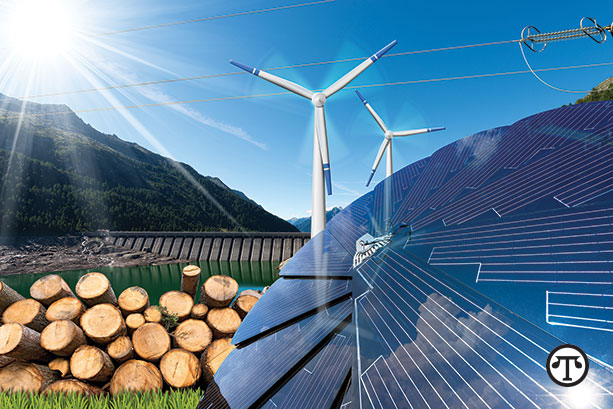
(NAPSI)—The amount of energy used each year in the United States is almost mind-boggling, with 97.7 quadrillion British thermal units (Btu) of energy passing through electrical lines, pipes, roads, rails, water and sky, according to the U.S. Energy Information Administration (EIA). This fast, reliable access to energy feeds the typical American home about 90 million Btu a year.
Behind the statistics is a vast network of people—according to the U.S. Department of Energy, about 6.4 million Americans—who produce, sell, transport and convert energy products for use. A significant slice of that network resides in Pennsylvania, the third largest producer of energy products in the United States, says the EIA.
How do we fulfill the demand for energy solutions and energy professionals? How do we supply everyone across the globe with reliable, affordable and sustainable energy to meet our needs?
If you’re an environmentally conscious student, there’s a college program that lets you seek answers to the big energy questions facing humanity, while also getting a classic liberal arts education, solid skills designed for the modern world, and an opportunity to apply your knowledge for good even before you graduate.
Situated at a major gateway to Marcellus Shale natural gas development, and adjacent to coal resources, emerging renewable facilities and nuclear power plants, Lycoming College’s location in North Central Pennsylvania constitutes an ideal setting for the Center for Energy and the Future (CEF).
The school’s deep commitment to the liberal arts approach makes it a good venue for discussing the complex topics connected to energy. Understanding energy not only requires knowledge of science but of the politics, economics, business, history and ethics that connect the chemistry, geology, physics and biology of energy to humanity. Lycoming’s students and faculty use an interdisciplinary approach to ask questions and seek answers to these complex issues, breaking down the walls of traditional academic disciplines to allow one field’s important findings to influence the pursuits of another.
Students get to dive right into their study of energy from their first days on campus if they are selected to be an Energy Scholar. In addition to receiving an academic scholarship, Energy Scholars benefit from an extensive range of the CEF’s curricular and co-curricular offerings during their time at the College. Coming from a broad variety of majors, Energy Scholars pursue energy-focused academic minors from the perspective of the natural sciences, including chemistry, biology, geology, physics and environmental sciences, as well as from the perspective of the social sciences and humanities, such as political science, economics, history, philosophy and anthropology.
Beyond the classroom, students’ understanding of the complexities of energy’s future is enhanced by interactions with the professionals, policymakers and academics who share their perspectives on energy issues, either as on-campus speakers or as long-term Energy Fellows.
Diverse field experiences range from tours of nearby drilling rigs, coal mines, wind farms and biomass alternative heating system facilities, to traveling to the Dominican Republic to help to expand access to electricity with solar power for poor, remote farmers.
An equally diverse array of internships, each targeted to the particular role in shaping the aspect of energy that most appeals to each student’s specific interests, empower Energy Scholars to maximize their liberal arts training, leading them to careers of significance in their chosen profession.
Learn More
For further facts about the College and the Center for Energy and the Future program, go to www.lycoming.edu/center-for-energy-and-the-future.
“College students can learn about the science and technology of energy and the debates surrounding energy production and consumption and their effects on individuals and society. http://bit.ly/2Hiji1f”
